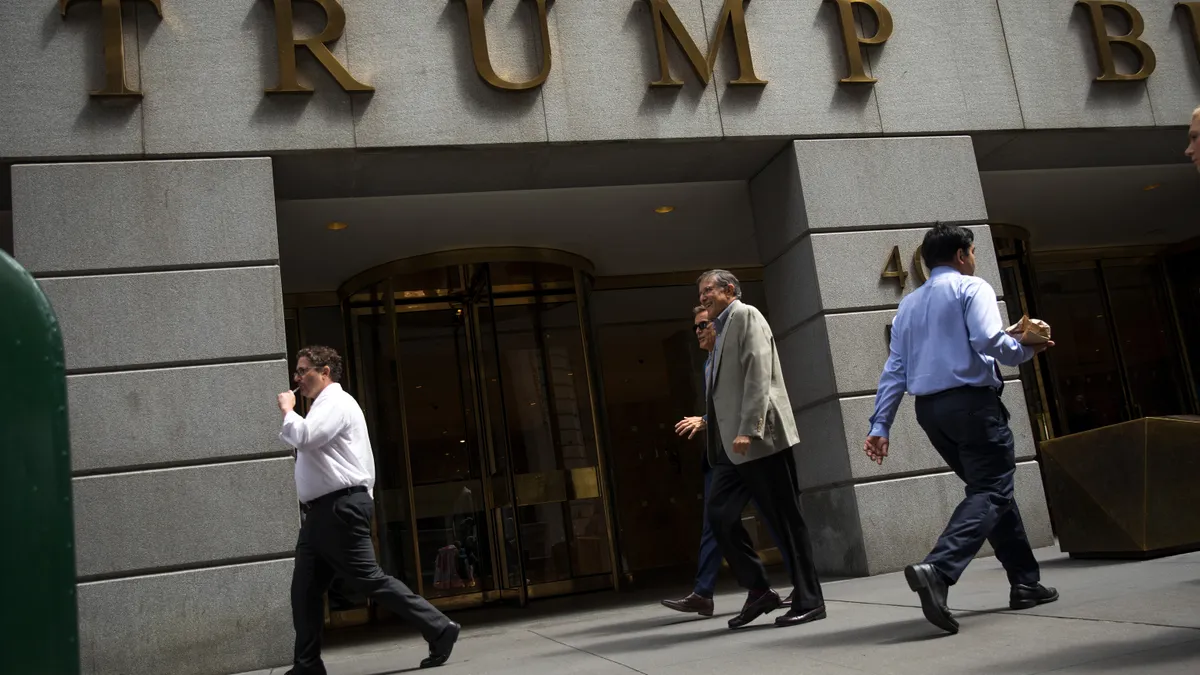The disclosure this week by the accounting firm Mazars USA that it has cut ties with the Trump Organization could leave the company in breach of loan agreements, says Tristan Snell, a former assistant New York attorney general who helped lead the prosecution of Trump University for fraud.
The accounting firm said in a February 9 letter that, after reviewing findings by the New York Attorney General, its own investigation and information provided by internal and external sources, it can no longer stand behind financial statements it signed off on over the last 10 years and has reached a point in which it has a non-waivable conflict of interest with the company.
“As a result, we are not able to provide any new work product to the Trump Organization,” says Mazars’ General Counsel William Kelly.
The letter was disclosed as part of an effort by New York Attorney General Letitia James to compel the testimony of former President Donald Trump, Ivanka Trump and Donald Trump, Jr., as part of a civil investigation into allegations the company inflated property values to secure favorable terms on loans it was applying for or trying to modify. The New York City District Attorney is conducting a criminal investigation into the valuation practices as well.
Among other things, the Trump Organization is said to have given a $291 million value to its Seven Springs estate in New York, which it bought in 1995 for $7.5 million, on the basis of mansions getting built, but development plans have yet to move forward.
Asset and liability summaries
At the heart of the investigations are annual statements of financial condition Mazars prepared that summarize the company’s assets and liabilities based on valuations the company provided. Although the accounting firm signed off on the statements, it made clear it had not independently verified the valuations and acknowledged that they didn’t always follow generally accepted accounting principles (GAAP).
The firm is now saying it can no longer stand behind those financials.
“The Statements of Financial Condition for Donald J. Trump for the years ending June 30, 2011 - June 30, 2020, should no longer be relied upon,” says the letter, addressed to Trump Organization General Counsel Alan Garten. “You should inform any recipients thereof who are currently relying upon one or more of those documents that those documents should not be relied upon.”
Potential breach
By saying the statements can’t be relied upon, the accounting firm is putting the Trump Organization at risk of breaching its loan agreements, Snell says.
“The loan agreements relying on the fraudulent financial reports likely have 'representations and warranties,'” he says in comments posted on Twitter, “including one in which Trump was vouching for the accuracy of all info he provided."
If lenders no longer have reason to believe the valuations can be vouched for, that could put the Trump Organization in violation of the representations and warranties. "So the lenders, like DeutscheBank, could potentially call the loans early, change the interest rates, impose penalties or fees, etc.," he said.
To the extent lenders call the loans or impose penalties, the actions could add to the financial pressure of the company, which reportedly has hundreds of millions of dollars of loans, some of the personally guaranteed by Trump, coming due in the next few years.
That could mean problems even if prosecutors fail to build a civil or criminal case against the company, as some analysts say could very well be the case. Prominent disclaimers in the financial statements make it clear the summaries are only reporting estimates and don’t pretend to give a complete picture of the company’s financial health.
Kyle Welch, an assistant professor of accounting at George Washington University, has said the exaggerations in the financial statements are so extreme as to be humorous in some cases, but that doesn’t change the protections the disclaimers give the Trump organization.
It’s not clear those same protections apply to the representations and warranties included in the loan agreements, though, Snell suggests.












